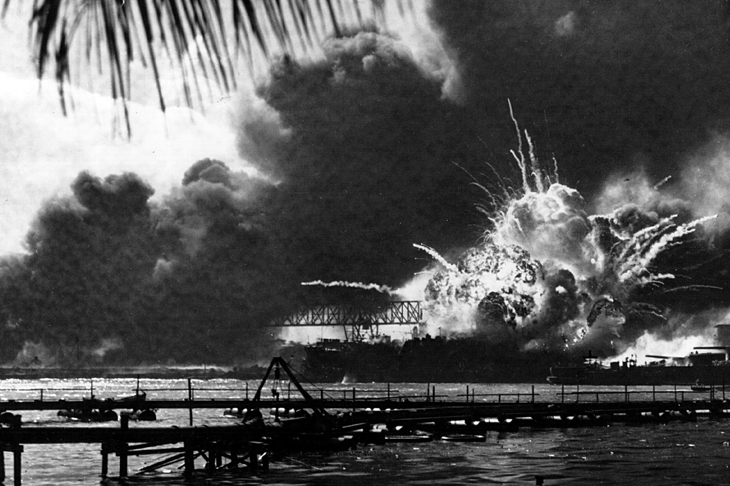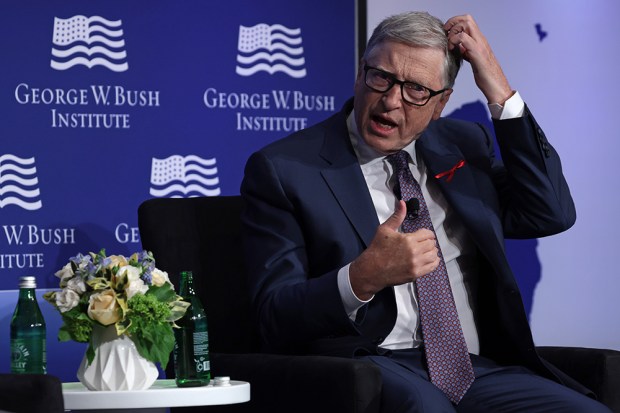In 1963, Canadian television debuted an animated cartoon series for children about The Mighty Hercules. It included a catchy song that sums up the power of deterrence. The lyrics went:
‘If you want to live in peace you’ve got to be strong. If you want to be left alone you’ve got to be strong. Yes, it takes big muscles, to keep you out of tussles, if you want to live in peace you’ve got to be strong.’
Trivial as The Mighty Hercules might seem, it bears testimony to the cultural gulf that separates the Sixties from today.
In 1962, the United States and the Soviet Union stared each other down in the Cuban Missile Crisis avoiding an escalation to nuclear war and indeed to a direct confrontation between the two superpowers.
Sixty years later, in 2022, the US and Nato were unable to deter President Putin from invading Ukraine, the largest attack on a European country since the second world war.
That failure of Western deterrence has been the single most destabilising event of recent history yet it hardly seems surprising. The US under President Biden projects itself as dangerously weak and frighteningly divided. This is a pattern repeated throughout the West.
It is no coincidence that at the very moment that the West is weakest, the threat of war is greatest. Yet that weakness, and the threat it creates, is not confined to the West. True, it has vitiated itself with its deranged overreaction to the pandemic and its crippling climate policies but China’s economy is also dangerously feeble, and Russia has been drained by its miscalculated invasion of Ukraine. It’s not so much a case of ‘Crouching tiger, hidden dragon’, as ‘Slouching donkey, limping dragon, drunken bear’.
The concept of ‘peace through strength’ stretches back to Emperor Hadrian who, almost two millennia before Donald Trump, kept the barbarians out of the Roman empire by building a wall.
The adage that if you want peace, prepare for war, is even older, first appearing in the works of Plato. It has echoed down through the ages with Louis Antoine Fauvelet de Bourrienne observing that if Napoleon had been a Latin scholar he would have said, ‘If you want war, prepare for peace’. That aphorism sums up the zeitgeist in the West. As a result, 2024 is shaping up to be a year of living dangerously.
The most obvious evidence of Western weakness outside of Europe is the rise and rise of Iran to quasi-hegemonic status in the Middle East. As Majid Rafizadeh, one of the most astute observers of Iran put it, ‘2024 is the year Iran will go nuclear unless the West stops it’. This is a truly frightening prospect.
Appeasement by the Western powers – the US, the UK, Germany, and the EU – that are signatories to the Iran nuclear deal, the Joint Comprehensive Plan of Action, has already emboldened Iran to wage war on the West in the Red Sea via its proxies, the Houthis. More than 100 attacks on commercial traffic were launched in the last month increasing the cost of insurance on Western goods while free passage was given to Chinese and Russian vessels.
Iranian proxies have also launched more than 100 attacks on US forces in Syria and Iraq since mid-October.
In Lebanon too, the leader of Iran’s proxy – Hezbollah – Secretary-General Hassan Nasrallah has said that his terrorist forces have launched around 670 attacks on Israel since Hamas launched its attack on October 8.
Iran is also at the forefront of drone technology which is changing the nature of warfare and dramatically reducing the barriers to entry for terrorist militias.
The most important lesson however that the West needs to reckon with is the surprise nature of the Hamas attack. As US national security adviser Jake Sullivan said only eight days earlier, the Middle East region was quieter than it had been for two decades. ‘Challenges remained,’ he conceded, ‘such as Iran’s nuclear weapons program, and the tensions between Israelis and Palestinians’ but, he said, ‘the amount of time that I have to spend on crisis and conflict in the Middle East today compared to any of my predecessors going back to 9/11 is significantly reduced’.
With hindsight, it is clear that one reason the region was quiet was because Iran’s proxies were engaged in preparing a major assault.
While Western countries are riven with internal dissension and sabotage their own economies, our enemies are undoubtedly rehearsing surprise attack scenarios. Israel is far better prepared for war than almost any other Western country but even it was caught completely off guard.
Is the US prepared for a Pearl Harbour-style attack by Iranian proxies on its US Air Force base in Qatar, which houses 10,000 troops? It just extended its presence in Qatar for another decade. With Qatar such a close ally of Iran, is that wise?
Is the US prepared for a surprise, Pearl Harbour-style attack in the Pacific from China? Strategists such as the late Senator Jim Molan and Harry J Kazianis, a senior director for national security affairs at the Center for the National Interest do not think it is.
And if the US is unprepared for such an attack, how much more is that true for Australia with its risible defence spending? Australia didn’t even think it had the wherewithal to send a single ship to protect commercial traffic traversing the Red Sea from Houthi terrorists because it had no capacity to deal with drones. This is a frightening admission of the nation’s lack of preparedness.
The solution to this woeful state of affairs is simple. As the defence editor of the UK Daily Telegraph Con Coughlin put it in a recent article, ‘When it comes to dealing with autocratic states like Russia and Iran, brute force is the only language they understand,’ and ‘the slightest hint of weakness will be gleefully exploited to their benefit’.
Ever since Putin’s tanks rolled into Ukraine, the timidity and cowardice of the West have been palpable. Western nations are frightened that Putin might use nuclear weapons whereas Putin seems not in the slightest bit concerned that that his actions might provoke a nuclear response by the US, or any other nation. In other words, Russian deterrence is still operational, only Western deterrence has failed.
The US, as the leader of the free world, has to reverse this. Everyone from China and Russia to Hezbollah and the Houthis must once again fear US and Western military intervention. Until they do, the West and its allies will continue to live dangerously.
Got something to add? Join the discussion and comment below.
Get 10 issues for just $10
Subscribe to The Spectator Australia today for the next 10 magazine issues, plus full online access, for just $10.
You might disagree with half of it, but you’ll enjoy reading all of it. Try your first month for free, then just $2 a week for the remainder of your first year.














Comments
Don't miss out
Join the conversation with other Spectator Australia readers. Subscribe to leave a comment.
SUBSCRIBEAlready a subscriber? Log in